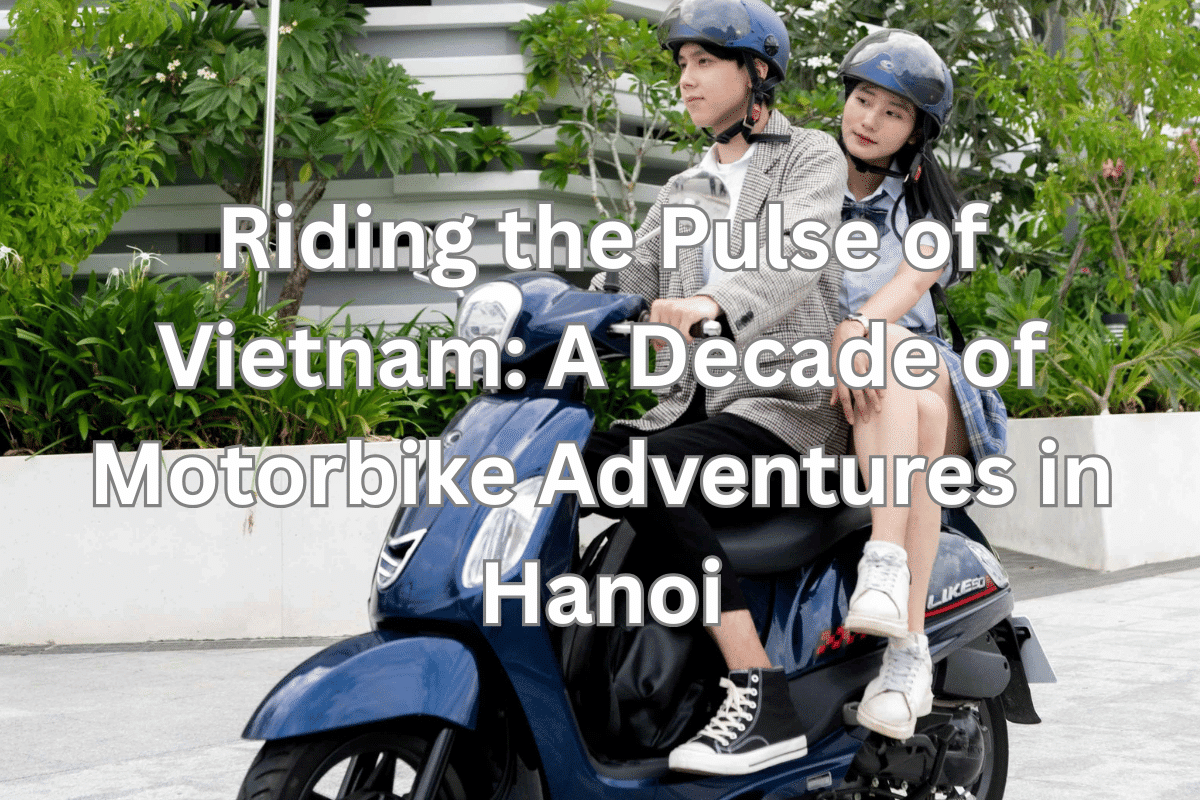Imagine a city where the roads are a pulsing river of metal, a symphony of honks, and the rules of the road feel… optional. This is Vietnam’s motorbike culture, a vibrant and chaotic experience that is unlike anything you’ve ever seen.
After spending the last ten years navigating the bustling streets of Hanoi on two wheels, I can confidently say that riding a motorbike here is not just a mode of transport; it’s a way of life. Join me as we dive headfirst into this beautiful chaos and explore how to survive—and even thrive—in the heart of Vietnam’s motorbike culture.
Table of Contents
- The Symphony of the Streets: First Impressions
- Beyond the Chaos: Understanding the Unwritten Rules
- A Day in the Life: Motorbike as Lifestyle
- Your Ride: Essential Survival Tips
- Embracing the Journey: The Vietnamese Spirit
- The Heartbeat of Vietnam
- Deep Dive Podcast
- Related Questions
The Symphony of the Streets: First Impressions
As you approach Hanoi or Ho Chi Minh City, the first thing that strikes you is the sheer volume of motorbikes. Aerial shots reveal a mesmerizing flow of vehicles, weaving in and out like a living organism.
Close-ups capture families balancing on a single bike, their laughter mingling with the sounds of the city. Street food stalls burst with color, each vendor calling out to passersby, blending seamlessly into the flow of traffic.
For newcomers, the immediate sensation is one of shock and awe. The sensory overload is palpable: the honking horns, the vibrant colors, the intoxicating aromas of street food wafting through the air. It’s bewildering at first, but as you stand there, you begin to understand that this isn’t just transport; it’s the heartbeat of daily life in Vietnam.
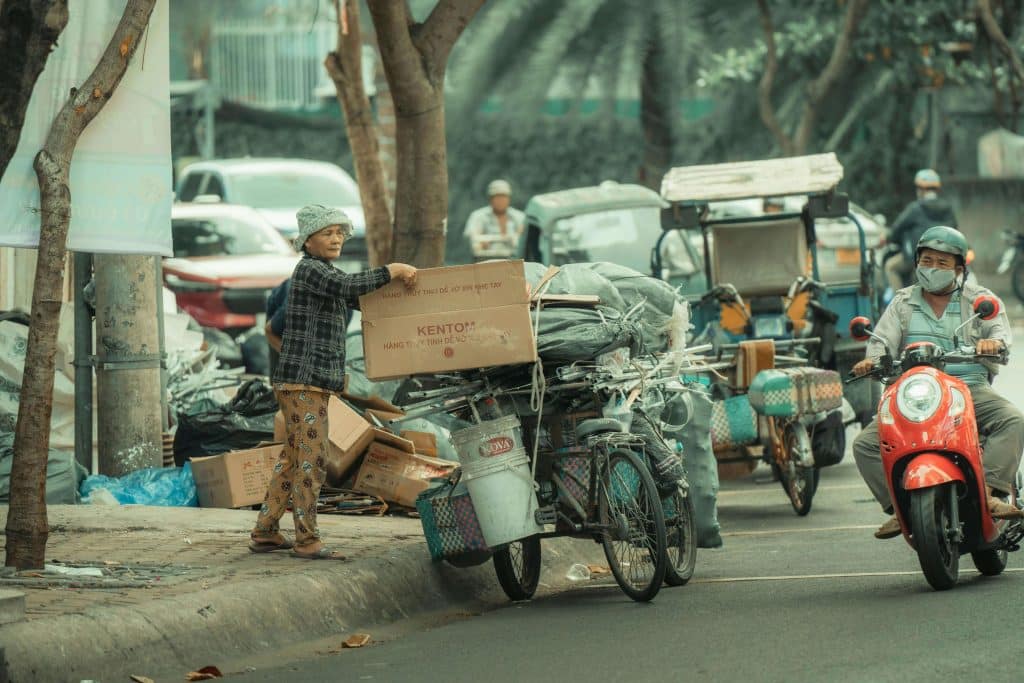
Beyond the Chaos: Understanding the Unwritten Rules
At first glance, the streets may seem chaotic, but there’s an underlying rhythm that governs the flow of traffic. This “flow” mentality is essential for anyone looking to navigate the streets of Vietnam.
The Flow Mentality
In Vietnam, the traffic may appear anarchic, but there’s a method to the madness. Drivers intuitively understand how to navigate the roads without explicit signals. Eye contact becomes a vital tool; a simple glance can communicate intentions more effectively than any traffic light.
Pedestrian “Swim” Technique
For pedestrians, crossing the street can feel daunting. The trick is to adopt the “swim” technique: step confidently into the road and maintain a steady pace. Motorbikes will naturally weave around you, as drivers are adept at anticipating your movements. It’s a dance of sorts, and once you get the hang of it, you’ll find it surprisingly liberating.
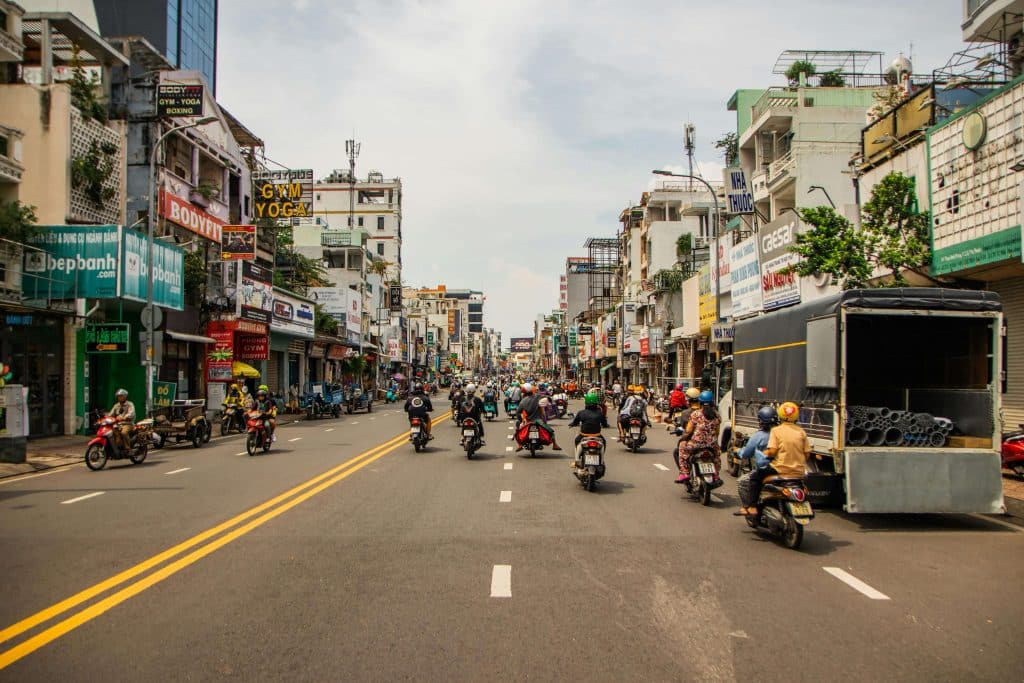
A Day in the Life: Motorbike as Lifestyle
The motorbike is more than just a vehicle; it’s a lifestyle that permeates every aspect of Vietnamese culture.
The Mobile Market
One of the most fascinating aspects of motorbike culture is its role as a mobile market. You’ll see bikes laden with incredible loads—everything from live chickens to towering stacks of furniture.
This adaptability showcases the resourcefulness of the Vietnamese people, who have mastered the art of transporting goods in even the most challenging conditions.
Commuting Rituals
Every day in Hanoi follows a familiar rhythm. The morning rush hour is a sight to behold, with thousands of motorbikes zipping down the streets.
School drop-offs become a family affair, with parents expertly maneuvering through traffic to get their kids to school. In the evenings, the streets come alive with gatherings of friends and families, all sharing meals and stories, often while perched on their trusty bikes.
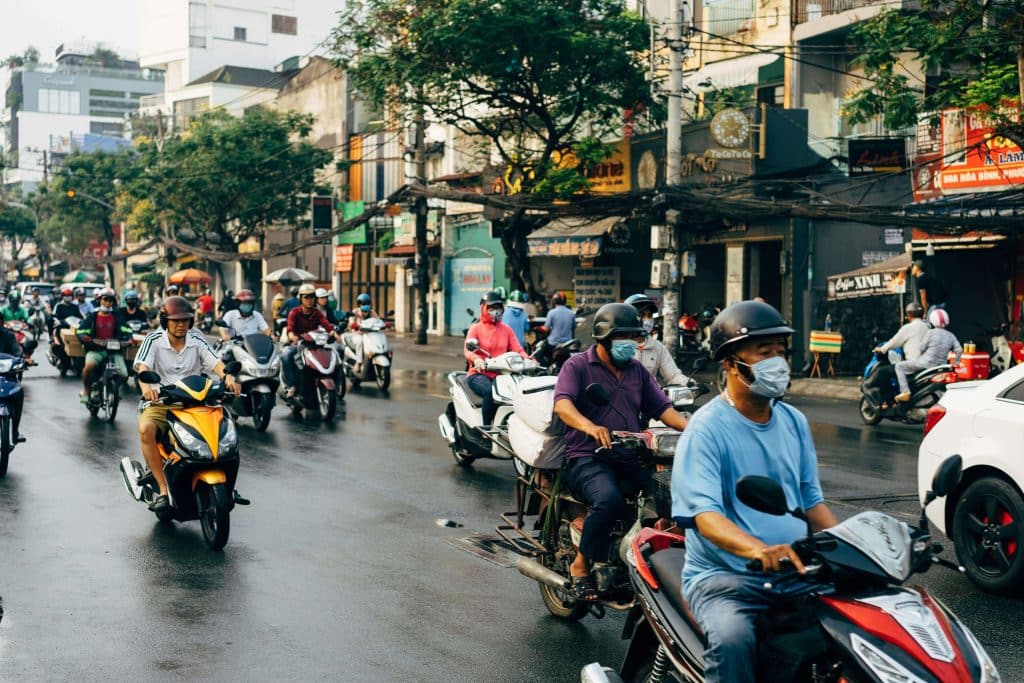
The Social Fabric
Motorbikes also facilitate community interaction. Small businesses thrive in this environment, with vendors setting up shop right on the streets, their bikes serving as both transport and storefront.
The social fabric of Vietnam is intricately woven into this culture, where every ride contributes to the vibrant tapestry of daily life.
Your Ride: Essential Survival Tips
If you’re planning to navigate the streets of Vietnam on a motorbike, there are some essential tips to keep in mind.
Renting and Riding
When renting a motorbike, look for a reliable rental agency. Check the condition of the bike, and don’t hesitate to ask questions.
While there are basic road rules, they often feel more like guidelines. Be prepared to adapt and go with the flow.
Safety First
Safety is paramount. Always wear a helmet—it’s not just a legal requirement, but a crucial protective measure. Practice defensive riding; anticipate the actions of other drivers, and be prepared for the unexpected.
Understanding local driving habits, such as the tendency to disregard traffic signals, will help you navigate more safely.
Navigating Apps and Local Support
Utilize apps like Grab or Gojek for rides or deliveries. These platforms are invaluable for getting around and can help you avoid the stress of navigating unfamiliar streets.
If you need directions, don’t hesitate to ask locals; they’re usually more than willing to help. Learning a few common phrases in Vietnamese can also enhance your experience.
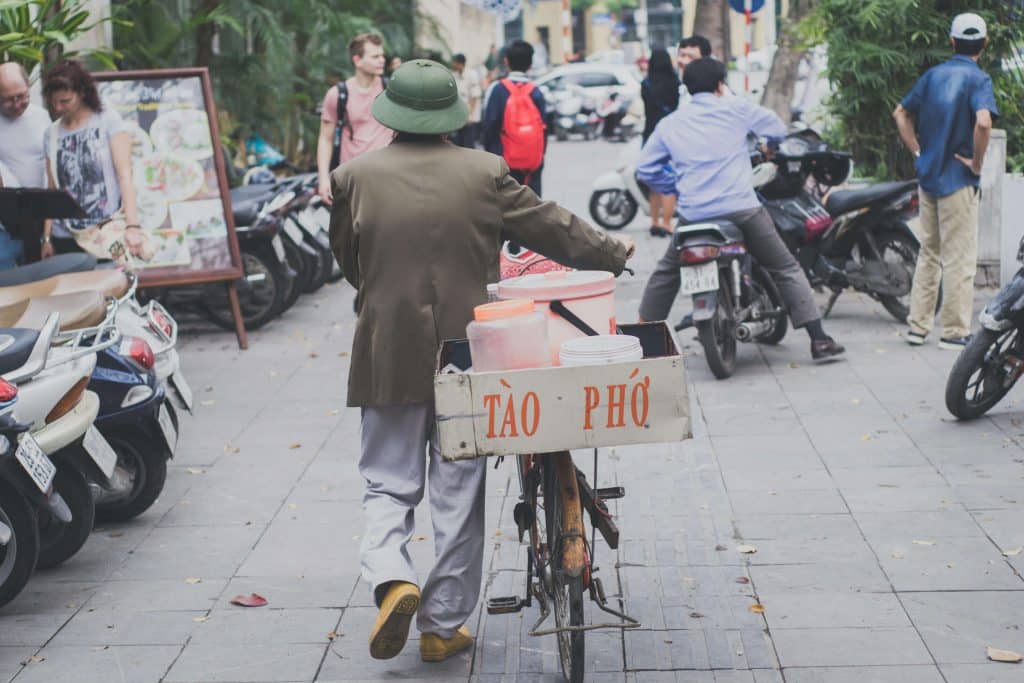
Embracing the Journey: The Vietnamese Spirit
Riding a motorbike in Vietnam offers a unique sense of freedom. The exhilaration of weaving through traffic, exploring hidden alleys, and discovering local gems is unmatched.
The Resilience and Adaptability
The Vietnamese people embody resilience and adaptability. They thrive in an environment that can be overwhelming for newcomers.
This spirit is infectious; as you ride through the streets, you’ll find yourself embracing the chaos and discovering the beauty within it.
A Call to Experience
I encourage everyone to visit Vietnam and immerse themselves in this iconic part of its culture. There’s nothing quite like the experience of hopping on a motorbike and feeling the pulse of the city beneath you.
The Heartbeat of Vietnam
After a decade of riding motorbikes in Hanoi, I can confidently say that this experience is one of the most exhilarating and enriching aspects of life in Vietnam.
The chaos of the streets, the camaraderie of fellow riders, and the thrill of exploration all contribute to a unique adventure that is deeply rooted in the culture of this beautiful country.
So, whether you’re a seasoned rider or a curious traveler, take the plunge. Embrace the rhythm of Vietnam’s motorbike culture, and let it sweep you away in its vibrant embrace.
The journey promises to be unforgettable, filled with stories, laughter, and a deeper understanding of what it truly means to experience Vietnam.
Deep Dive Podcast
Join us for a Deep Dive about riding motorcyles in Hanoi.
At A Bus On A Dusty Road, we talk about history, travel, life, sailing, and ex-pat living. We are all about “Living Life As A Global Citizen.” We explore social, cultural, and economic issues and travel.
We would love to have you be part of our community. Sign up for our newsletter to keep up-to-date by clicking here. If you have any questions, you can contact me, Anita, by clicking here.
Listen to our Podcast called Dusty Roads. You can find it on all major podcast platforms. Try out listening to one of our podcasts by clicking here.
Subscribe to our A Bus On A Dusty Road YouTube Channel filled with great videos and information.
Related Questions
How Strong Are Confucian Values In Vietnam?
The Confucian values have influenced Vietnamese society and culture with piety to parents, the patriarchal society, worship, and respect for ancestors. There is also critical respect for those who are older than you. The Vietnamese education system teaches many Confucian values, ingrained in the entire education system and society.
You can discover more by reading How Strong Are Confucian Values In Vietnam? by clicking here.
Where Is The Ching Ming (Qing Ming) Festival Celebrated?
The Ching Ming (Qing Ming) festival is celebrated in most parts of Asia, especially in any country with a large Chinese community. Not all countries will celebrate this cultural festival as a public holiday, but in many parts of Asia, you will find people taking time off work as they need to go with their families to their family gravesites.
You can learn more by reading Where Is The Ching Ming (Qing Ming) Festival Celebrated? All About by clicking here.
Vietnam Travel Visa, What You Need To Know Before You Go
Visitors coming to Vietnam must organize and look at a Vietnam travel visa before entering Vietnam. There are several ways to obtain a Vietnamese visa 1) through the Vietnamese Embassy, 2) online through an agent, or 3) a visa at the border. In some circumstances and for some nationalities, Vietnam also offers visa-free exemptions.
By clicking here, you can discover Vietnam Travel Visa, What You Need To Know Before You Go.

